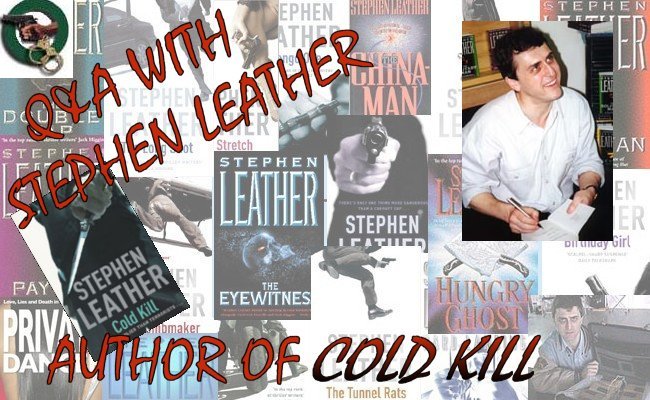

|
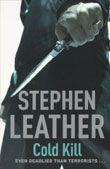
|
In COLD KILL you write: 'It is no longer a person's race or background that stipulated British citizenship; it was whether or not they had the correct paperwork.† And the paperwork is for sale to anyone with enough money or the right connections.í† Is this true? Itís the view of the Saudi, who masterminds the terrorist attacks in my book. And I think a lot of so-called British citizens feel the same. A British passport is a travel document to them, nothing more. And it is a travel document that is freely for sale.We donít even seem to do basic checks on the people to whom we give citizenship. I personally know four people who entered into marriages of convenience to get passports and who are now living in this country. We give passports to foreign drug dealers, pimps, black marketers, and terrorists. Thatís a fact. And most retain their original citizenship which they use to jump ship whenever they run into problems here. This government admits that it has no idea how many foreign nationals are living in this country, never mind how many so-called British citizens are working against the interests of our society.In the novel you describe a trafficking operation by private boat across the British Channel. Are people entering Britain this way and how did you research this? Did you take a boat across the Channel and was it hazardous? Is it a major smuggling route? I went out into the Channel a couple of times, once on a rib (the sort described in the book) and once on a trawler. Not dangerous because it was on calm days. A lot of illegals do come in by sea. There are only three ways into the UK. By air, sea, or the Channel Tunnel. The ones coming in by air have to have passports. The vast majority come hidden in trucks on ferries or through the tunnel, but lots come in boats. The chances of those doing the smuggling being caught are negligible and the penalties are far less than for smuggling drugs.Your hero, Dan 'Spider' Shepherd is a former SAS trooper. †In your book you say that a high percentage of former SAS members end up killing themselves. Is this true and if so why? Yes, there is a high suicide rate among former SAS guys, mainly because they miss the life and there isnít much else they can do. In a way, the Iraq situation has been a godsend because now there is a situation where they can use their skills and get highly paid for it. Huge numbers of former SAS guys are out there earning €1,000 a day and up. In fact the pay is so good that a lot of SAS troopers are leaving the regiment early.In the novel you talk about SOCA the serious organised crime agency being the UK's FBI. Does SOCA exist and what does it do? The Government announced in 2004 that it would be setting up the organisation, and it became law with the passing of the Serious Organised Crime and Police Act 2005. SOCA should be operational by April 2006, two months after Cold Kill is published.The single agency will bring together the responsibilities that are currently shared by the National Criminal Intelligence Service (NCIS) and the National Crime Squad (NCS). It will also take over organised crime investigations currently handled by the immigration service and Customs and Excise. The Home Office says the "elite force" will use "hi-tech, 21st century technology to uncover the new wave of crime bosses. Initial estimates suggest a staff of at least 5,000 officers and support staff. A small army of specialist civilian investigators such as accountants, financial analysts and computer experts will be working alongside the police detectives. The new force is already being seen as a British version of the F.B.I..Are money laundering operations being run under the cover of bureaux de change in London? Pretty much any business that handles lots of cash can be used to launder money. Bureaux de change are perfect for laundering money (as are private banks) as their business is all about cash.In your last novel, SOFT TARGET, 'Spider' was working for SO19 the armed-response unit of the Metropolitan police.† Recently an American police officer working in the UK resigned because he felt that policemen should be armed and were not adequately trained to deal with violent crime. As part of your research do you talk to British police and what is your view on this? I think we have it just about right in the UK. We have armed police available as and when we need them. They are highly-trained and highly-motivated and know what they are doing. In view of the way the police have been consistently lowering their entrance standards over the years, I donít think it would a good idea to give every PC a loaded gun. It wouldnít be good for their image, either. Yes, we absolutely need armed police in this country, but they should remain in specialised units.In the novel you state: ' The way in which the authorities allow the liberal use of untraceable sim cards made no sense to the Saudi.† Mobile phones were used to detonate bombs but governments in the West allowed anyone to buy a sim cards without identifying himself.' Is this true and what do you think should be done about it? Yes, itís true. Every drug dealer, pimp and dodgy tradesman uses pay-as-you-go sim cards in their mobile phones which they jettison on a regular basis. Itís madness. It was only after the summer Tube bombings that we actually started to check the passports of people leaving the country. Itís no wonder that so many terrorists choose to live here.Terrorists use mobile phones to detonate bombs. Thatís a fact. Thailand, which has had several mobile phone-activated bombs go off in the south, has now started to register all phones, including pay-as-you-go. Any phones not registered (with a passport or ID card) will be cancelled. Our Government should do the same.In the novel you write: ' Money that was supposed to be used for the reconstruction of Bosnia has been channelled into terrorist networks. Millions upon millions of dollars. Is this true? Yes, and it is well documented.In COLD KILL the terrorists are planning to blow up Eurostar when it's in the tunnel. Have you been on Eurostar and what do you think of the security? Yes. The train is as secure as the average plane, I guess. But the way I describe getting a bomb onto the Eurostar will work. I think that the Eurostar will be attacked by terrorists eventually, either with bombs or poison. I would put money on it. I predicted the Tube bombings before they happened-In Cold Kill, I write about terrorists planning explosions in Sydney, Australia. Within two months of delivering the book to Hodder, anti-terrorist police in Australia arrested a gang of extremists who were planning exactly that. It wonít be long before Australia is the victim of a major terrorist incident.Thatís the way I work #150; if you write about terrorists, you have to think like a terrorist.You describe some pretty horrific torture scenes in the novel when the authorities are questioning someone who they think is masterminding the terrorist attacks.† Torture contravenes the Geneva Convention . Are suspects tortured like this in the UK and where do you get your information? The US Government argues that the terms of the UN Convention Against Torture do not apply when interrogations take place outside US territory. There are 45 countries which have not yet ratified the convention, leaving those countries open to CIA operatives who want to torture suspects. The UK obviously wouldnít be one of those countries! But are the Americans involved in the torture of terrorist suspects? Absolutely.Do you believe that any means are justified to obtain information that might prevent the deaths of hundreds of innocent people? Thatís what I wanted to explore in the book. Personally, I think that torture is justified providing that lives are in imminent danger and there is no doubt that the person has the information.In my next book, Hot Blood, I want to take the dilemma a stage further. Is it justified to torture and kill an innocent person if that will save lives? Thatís the call that Spider has to make when one of his friends is kidnapped in Baghdad.Your plots have a habit of becoming tomorrowís headlines. Where do you get your ideas from? Newspapers and the internet give me basic ideas plus a lot of time spent with police officers and undercover agents to garner specific information. Most of the stories I write are based on things that have actually happened, or on what the authorities fear will happen. In my last book, Soft Target which was published five months before the London bombings I have four Muslim suicide bombers, British-born, setting out to detonate bombs on the London Tube. This is exactly what happened on July 7, 2005. My terrorists spread out across the Tube system and in my book one bomb detonated above ground. In Soft Target my hero ĎSpiderí shoots one of the would-be bombers in the back of the head without knowing for sure that the man had a bomb. This was the dilemma the police faced after the London bombings when they shot an innocent unarmed Brazilian electrician.You started your writing life as a journalist. What made you switch to fiction? I always wanted to be a writer. Being a journalist for ten years taught me how to write effectively and how not to be intimidated about asking questions.
www.stephenleather.com |

|
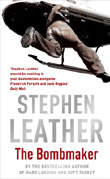
|
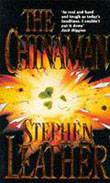
|
|
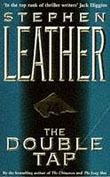
|
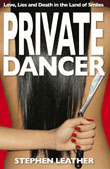
|
|
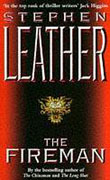
|
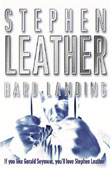
|
|
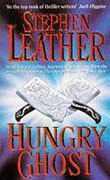
|
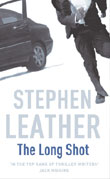
|
|

|
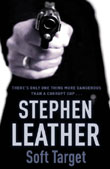
|
|
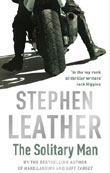
|

|
|
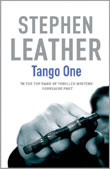
|
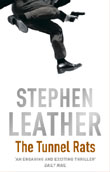
|
|
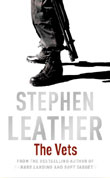
|
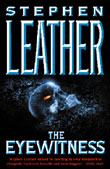
|

| Webmaster: Tony 'Grog' Roberts [Contact] |